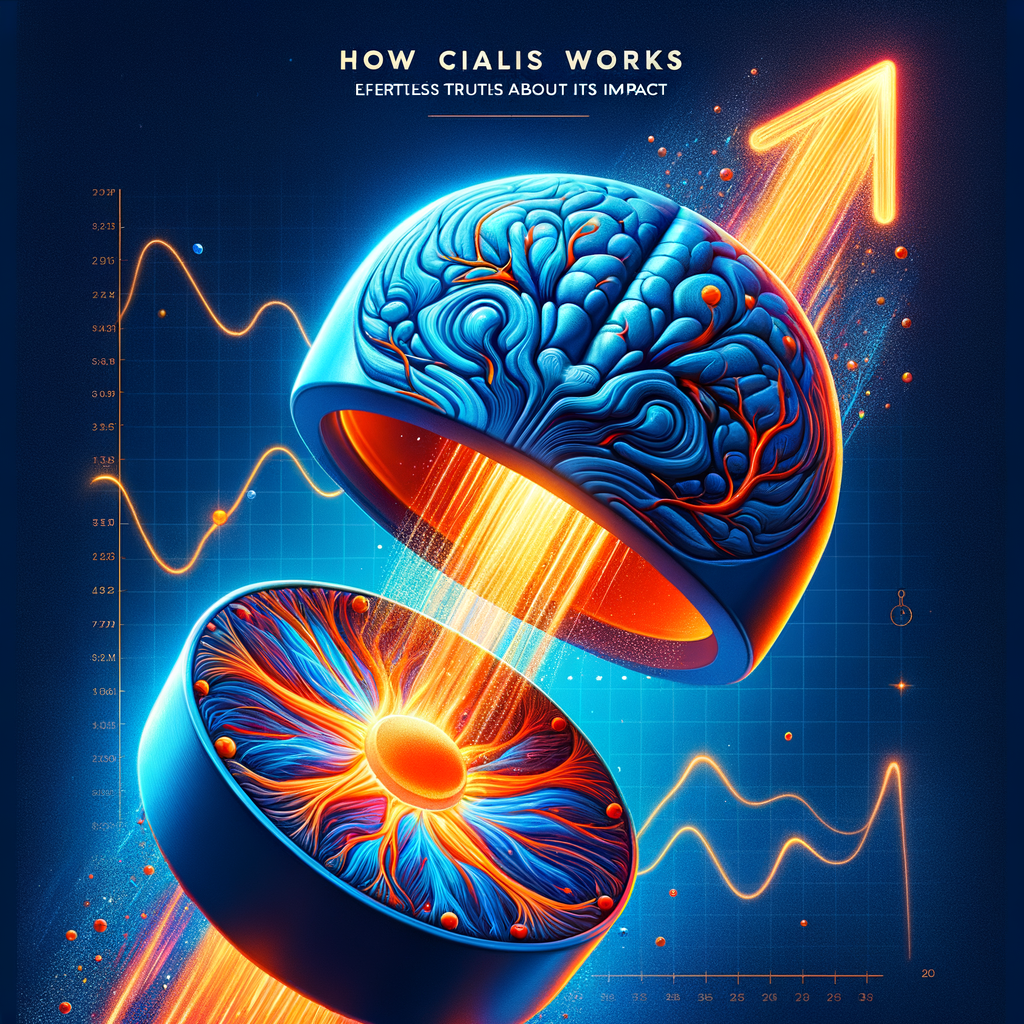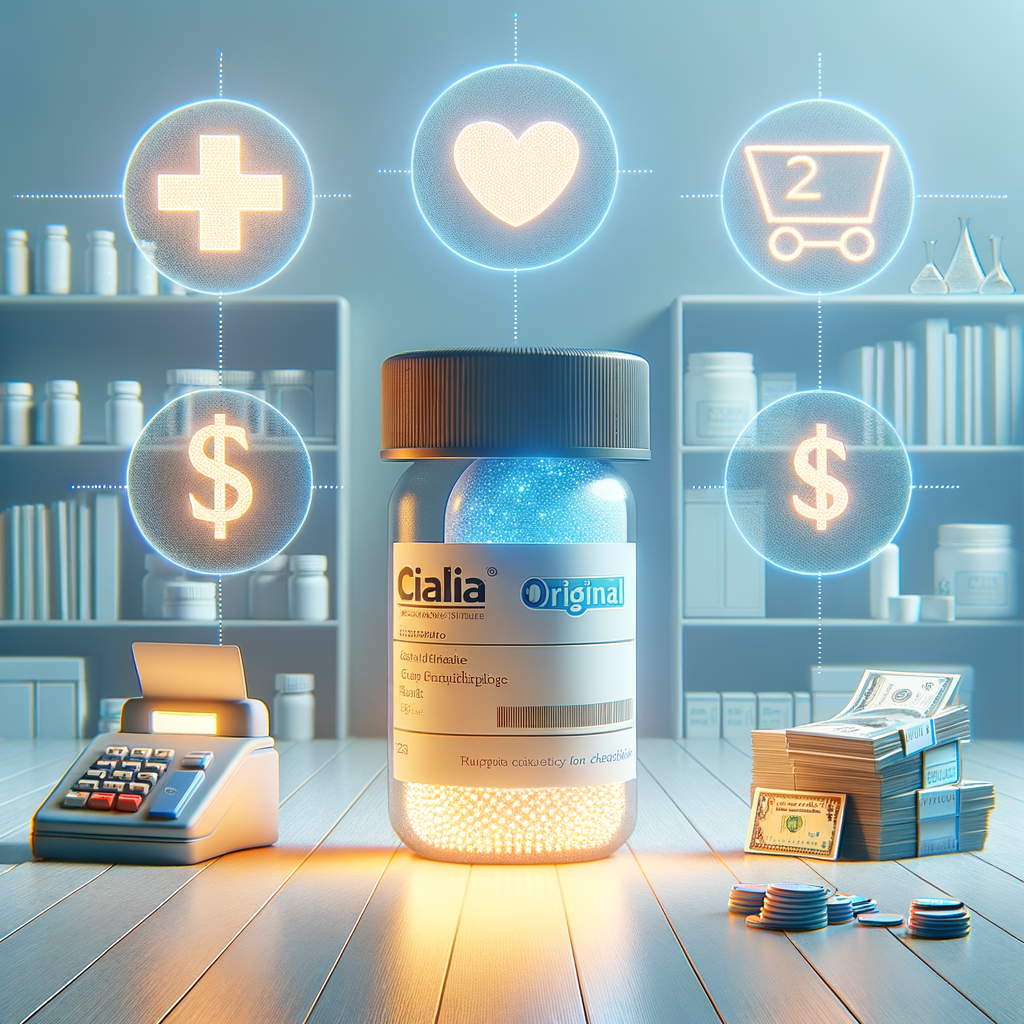Introduction
Welcome to a comprehensive guide on how Cialis works, shedding light on its impact and benefits. Cialis, a popular medication used to treat erectile dysfunction, has garnered attention for its efficacy and ease of use. In this detailed exploration, we will unveil the effortless truths behind Cialis, providing insights into its mechanism of action and how it can positively impact your life.
Understanding Cialis
Cialis, also known by its generic name tadalafil, belongs to a class of drugs called phosphodiesterase type 5 (PDE5) inhibitors. These medications work by blocking PDE5, an enzyme that plays a crucial role in regulating blood flow to the penis. By inhibiting PDE5, Cialis helps relax the muscles in the blood vessels of the penis, allowing for increased blood flow and ultimately facilitating an erection when sexually stimulated.
The Impact of Cialis on Erectile Dysfunction
For men experiencing erectile dysfunction, Cialis offers a ray of hope. By enhancing blood flow to the genital area, Cialis enables individuals to achieve and maintain a firm erection suitable for sexual activity. This can lead to increased confidence, improved sexual satisfaction, and enhanced overall quality of life for those struggling with erectile issues.
Dosage and Administration
Cialis comes in various strengths, typically ranging from 2.5 mg to 20 mg, with the recommended starting dose being 10 mg. It is essential to follow the prescribed dosage guidelines carefully and not exceed the recommended amount. Cialis should be taken approximately 30 minutes before sexual activity, and its effects can last up to 36 hours, earning it the nickname “the weekend pill.”
Side Effects and Precautions
While generally well-tolerated, Cialis may cause some side effects, including headache, indigestion, back pain, and muscle aches. In rare cases, more severe side effects such as sudden vision loss or priapism (prolonged erection) may occur, necessitating immediate medical attention. It is crucial to discuss any existing medical conditions and medications with your healthcare provider before starting Cialis to ensure its safety and effectiveness.
Benefits Beyond Erectile Dysfunction
Aside from its primary indication for erectile dysfunction, Cialis has shown promise in treating other conditions. In particular, it is sometimes prescribed to alleviate symptoms of benign prostatic hyperplasia (BPH), a non-cancerous enlargement of the prostate gland that can lead to urinary issues. By relaxing the muscles in the prostate and bladder, Cialis can help improve urine flow and reduce symptoms of BPH.
Cialis vs. Other Erectile Dysfunction Medications
Compared to similar medications like Viagra and Levitra, Cialis stands out for its longer duration of action. While Viagra typically lasts for around 4 to 5 hours and Levitra for 5 to 6 hours, Cialis offers a much longer window of effectiveness, making it a popular choice for individuals seeking spontaneity and flexibility in their sexual activities.
Myths and Misconceptions
Despite its proven effectiveness, Cialis is not a magic pill that guarantees instant and automatic erections. Sexual stimulation is still required for the medication to work, emphasizing the importance of maintaining a supportive and communicative relationship with your partner. Additionally, Cialis is not an aphrodisiac and will not increase sexual desire on its own.
Safety and Legal Considerations
It is important to obtain Cialis from a reputable source, such as a licensed healthcare provider or pharmacy, to ensure that you are receiving the genuine medication. Avoid purchasing Cialis from unauthorized online sources or without a prescription, as counterfeit or substandard products can pose serious health risks. Always follow your healthcare provider’s instructions and report any adverse effects promptly.
FAQs
1. Can Cialis be taken with alcohol?
– While a moderate amount of alcohol is generally safe, excessive drinking can increase the risk of side effects such as dizziness or low blood pressure when combined with Cialis. It is best to consult your doctor for personalized advice.
2. Is Cialis safe for all men with erectile dysfunction?
– Cialis may not be suitable for individuals with certain medical conditions, such as severe heart disease or liver problems. Your healthcare provider can assess your eligibility for Cialis based on your medical history.
3. Can Cialis be taken daily?
– Cialis is available in a daily dosage form (2.5 mg to 5 mg) for continuous use. However, this regimen is typically prescribed for individuals who engage in regular sexual activity rather than on an as-needed basis.
4. Are there any food interactions with Cialis?
– Cialis can be taken with or without food, as its absorption is not significantly affected by meals. However, consuming a high-fat meal may delay the onset of action.
5. Is Cialis addictive?
– Cialis is not addictive, as it does not cause physical dependence or withdrawal symptoms. It is a prescription medication intended for specific medical purposes and should be used as directed by your doctor.
6. Can Cialis help with premature ejaculation?
– While Cialis is primarily indicated for erectile dysfunction, some studies suggest that it may have a modest benefit in delaying ejaculation. However, more research is needed in this area.
7. What should I do if Cialis does not work for me?
– If Cialis does not produce the desired effects or causes intolerable side effects, discuss your concerns with your healthcare provider. They may recommend adjusting the dosage or trying a different treatment option.
8. Does Cialis protect against sexually transmitted infections?
– No, Cialis does not offer protection against sexually transmitted infections (STIs). It is essential to practice safe sex and use appropriate barrier methods to reduce the risk of STIs.
9. Can Cialis be used by women?
– Cialis is not approved for use in women and is specifically designed for men with erectile dysfunction. Women should not take Cialis, as its effects and safety in females have not been adequately studied.
10. What happens if I overdose on Cialis?
– In case of an overdose, seek immediate medical attention or contact a poison control center. Symptoms of Cialis overdose may include severe headaches, dizziness, fainting, or priapism.
References
1. Mayo Clinic. (2021). Tadalafil (Oral Route) Description and Brand Names. https://www.mayoclinic.org/drugs-supplements/tadalafil-oral-route/description/drg-20067212
2. American Urological Association. (2020). Understanding Erectile Dysfunction and Cialis. https://www.auanet.org/patient-care/understanding-erectile-dysfunction
3. National Institutes of Health. (2016). The Mechanism of Action of PDE5 Inhibitors. https://pubmed.ncbi.nlm.nih.gov/27857156/
This comprehensive guide on how Cialis works aims to equip you with the knowledge and insights needed to make informed decisions about this medication. Remember to consult your healthcare provider for personalized advice and guidance tailored to your individual needs and health status.



